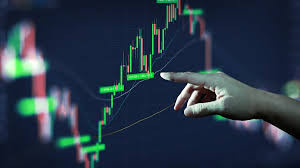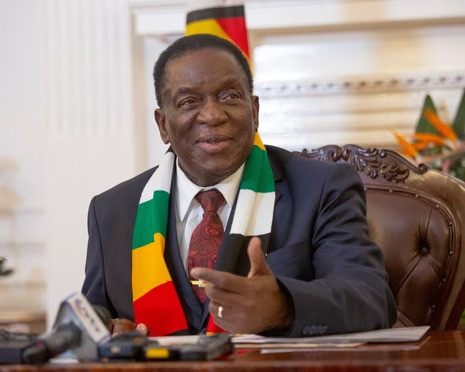
As the global financial landscape evolves, foreign currency (forex) trading has emerged as a pivotal area for investment, especially for Zimbabwean investors looking to diversify their portfolios.
The forex market, where currencies like the US dollar (USD) and euro (EUR) are traded, operates on principles of supply and demand, influenced by economic, political, and psychological factors.
Here’s an in-depth look at how this market functions, using the USD/EUR pair as an example, alongside practical steps for Zimbabweans to start trading.
Understanding forex trading:
Forex trading is essentially the buying of one currency while simultaneously selling another, aiming to profit from changes in their relative values.
Currencies are quoted in pairs; for instance, USD/EUR shows how many euros one dollar can buy. If you see a rate of 1.1000, it means 1 USD equals 1.10 EUR. If this rate moves to 1.1100, the USD has strengthened (or EUR weakened), and if you had bought USD, you’d now have more EUR per dollar.
Exchange rates: These are determined by several factors including interest rates set by central banks, inflation rates, political stability, and economic performance. For example, if the European Central Bank (ECB) raises interest rates while the Federal Reserve maintains or lowers them, the euro might strengthen against the dollar.
Leverage: One unique aspect of forex trading is the use of leverage, allowing traders to control large amounts of currency with a relatively small investment.
- In Full: Nineteenth post-cabinet press briefing: July 05, 2022
- Dispute erupts over Mathe chieftainship
- Local ref to officiate at Rugby World Cup qualifiers
- Sables secure Netherlands Test ahead of Rugby World Cup qualifiers
Keep Reading
For instance, with 1:100 leverage, you can control $100 000 with just $1 000.
However, while leverage can amplify gains, it equally magnifies losses.
This is one reason why I don’t generally like to trade forex because in my experience, you’d be forced to use leverage by most brokers.
Pips and lots: A ‘pip’ is the smallest price move that a given exchange rate can make based on market convention. For most major currencies like USD/EUR, one pip equals 0.0001.
A ‘lot’ refers to the size of your trade; a standard lot is 100,000 units of the base currency (USD in USD/EUR).
Opening a brokerage account for forex trading:
I am hesitant to recommend any specific broker as I believe a broker is just an instrument which you can use to be able to trade forest or other financial security. However,I n my experience, here’s how I got started:
Select a broker: Choose a forex broker that is regulated (e.g., In Canada, I use a broker that is regulated Canadian Securities Administrators (CSA). Look for low spreads, educational resources, and payment options like electronic wallets or bank transfers suitable for Zimbabwe.
Registration: Navigate to the broker’s website, fill in the registration form with personal details and read and understand the terms and conditions before agreeing to use a brokerage account.
Verification process: Provide identification (passport/ID) and proof of address. Some brokers might require additional financial details or a utility bill.
Funding your account: Decide on your deposit method. Brokers might accept local payment methods or international transfers. The minimum deposit can vary, starting from as low as $10 with some platforms.
Choosing a trading platform: Most brokers offer downloadable or web-based platforms where you’ll execute trades.
Demo account: It’s advisable to start with a demo account to practice trading without financial risk, especially for beginners.
The role of a broker: A broker is not an advisor but an intermediary providing the tools and market access needed to trade. They offer platforms, market data, leverage, and sometimes educational content to help you trade effectively.
Key considerations for forex traders:
Risk management: Use tools like stop-loss orders to limit potential losses. Remember, forex markets can be highly volatile. I have created a video on my YouTube channel streetwise economics showing how to trade forex profitably.
Market knowledge: Understand that forex markets are influenced by global events. Economic indicators like the Producer Price Index (PPI), which rose by 0.2% month-over-month in December as reported by Investing.com, can sway currency values.
Trading strategy: Develop and stick to a strategy. Whether it’s technical analysis (looking at price charts) or fundamental analysis (economic data), consistency is key.
Emotional discipline: Avoid making impulsive trades based on market news or fear of missing out.
Data points that move forex markets:
Interest rates: Decisions by central banks on interest rates can lead to significant currency movements.
For instance, if the ECB signals a rate hike, EUR might appreciate.
Economic indicators: Unemployment rates, GDP growth, inflation (like the aforementioned PPI), and consumer confidence can all impact currency strength.
Political stability: Elections, policy changes, or geopolitical tensions can lead to market volatility.
Market sentiment: Sometimes, markets react more to perception than actual data, especially during times of uncertainty.
A few credible data sources I use in my trading include Investing.com for real-time forex rates and economic calendars. Bloomberg for in-depth market analysis and economic news. Forex Factory for community insights and economic event calendars.
Before Diving into Forex Trading or any investment. I tend to find the following suggestions helpful:
Educate yourself: Forex trading isn’t a quick-rich scheme; it requires understanding market dynamics.
Set clear goals: Decide if you’re trading for short-term profits or long-term investment.
Capital: Only invest what you can afford to lose. Forex trading carries high risk.
Regulation: Ensure your chosen broker is regulated to protect against fraud.
For more detailed guidance or to delve deeper into forex trading strategies, feel free to contact us at www.streetwiseeconomics.com. We provide resources and personalised insights tailored for the Zimbabwean investor exploring the global forex markets.
In conclusion, forex trading offers Zimbabwean investors an opportunity to engage with the world’s largest financial market.
However, it demands a keen understanding of market movements, disciplined risk management, and continuous learning. With the right approach and tools, the forex market can indeed be a lucrative arena for investors from Zimbabwe looking to expand their financial horizons.
*Isaac Jonas is a Canadian based economist and consultant at Streetwise Economics. He is also a retail investor, retail trader and content creator, focusing mainly on the US and Canadian capital markets. He regularly shares insights via his social media handles and YouTube channel (Streetwise Economics). His website is www.streetwiseeconomics.com and can be reachable on isacjonasi@gmail.com. Insights shared in this article do not amount to investment advice.









